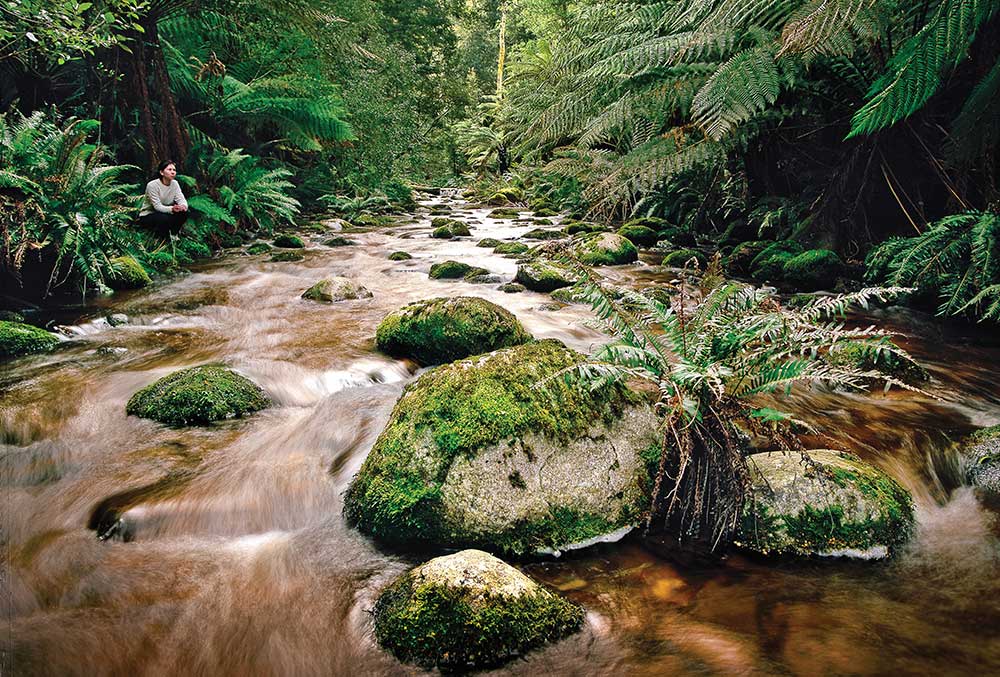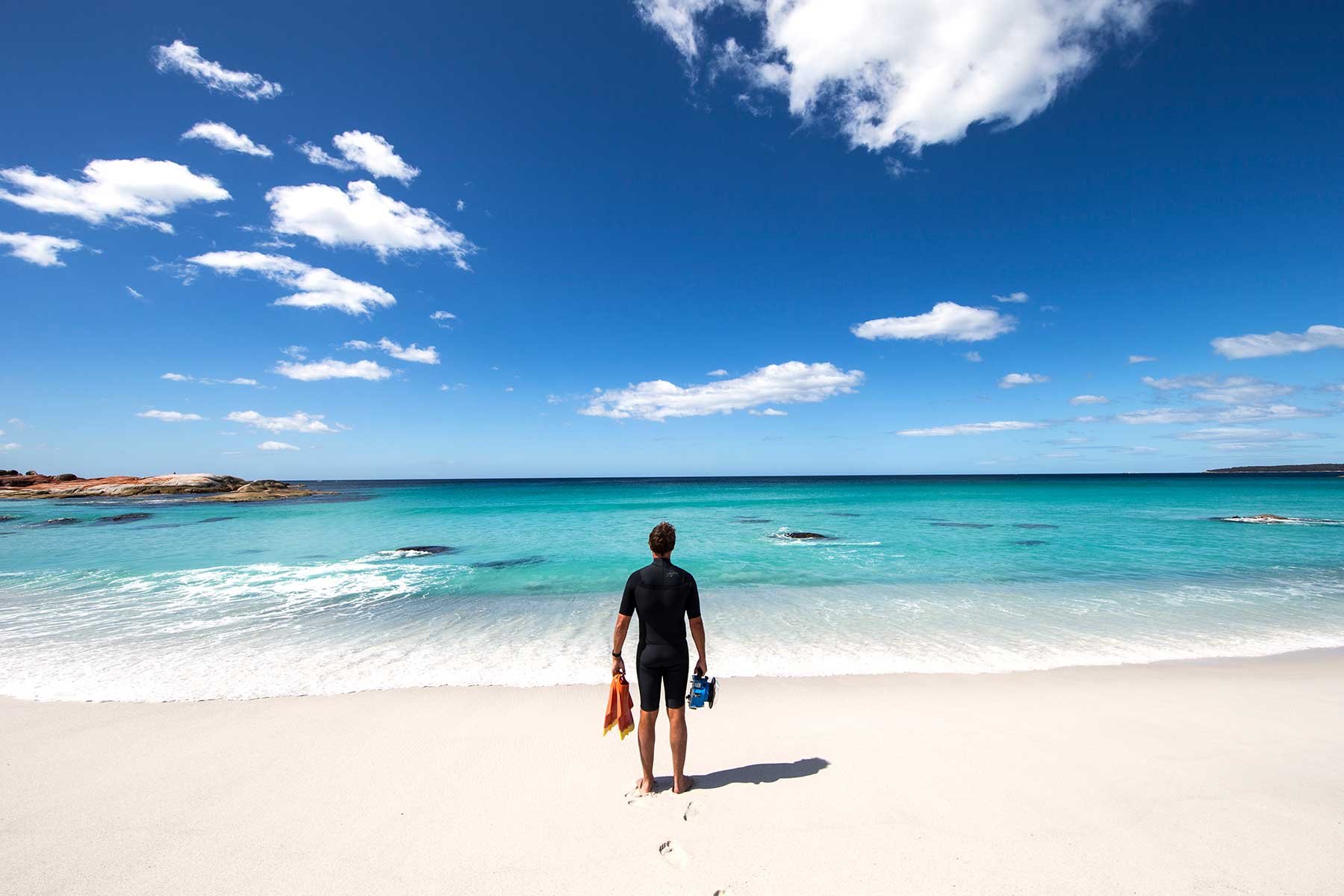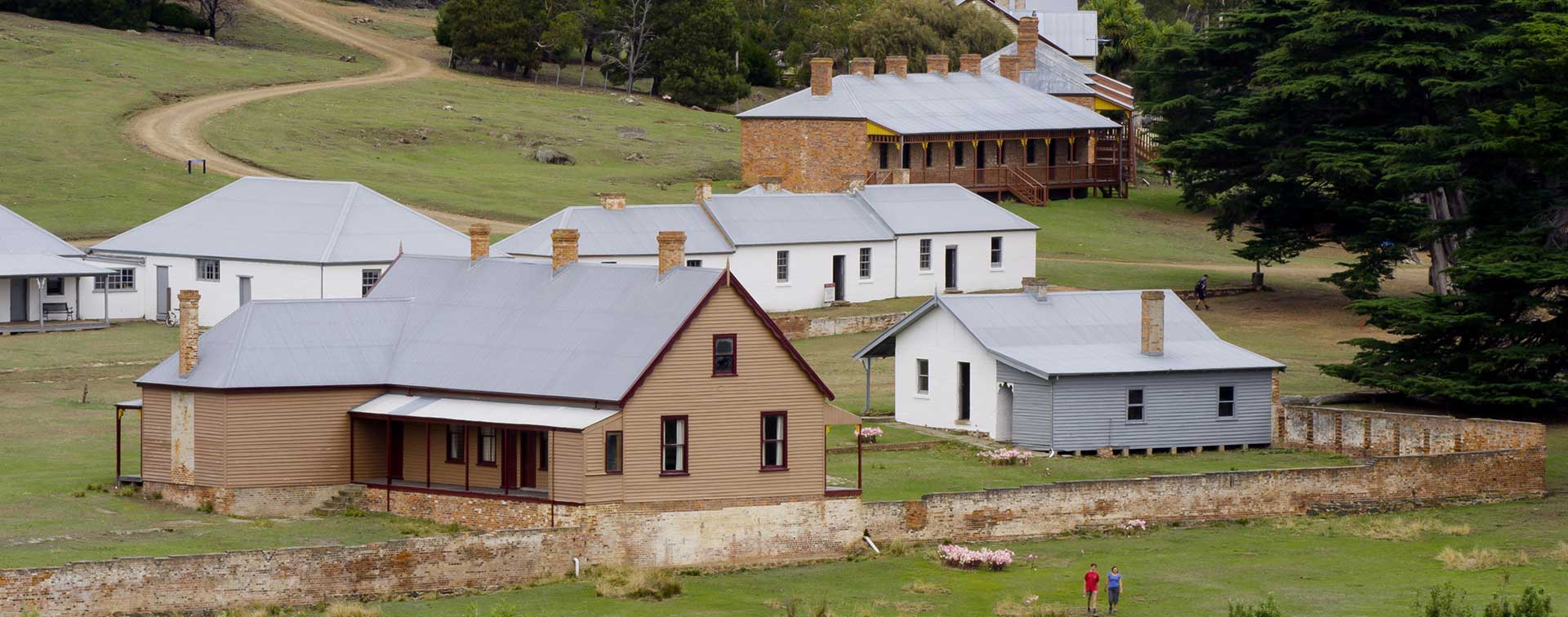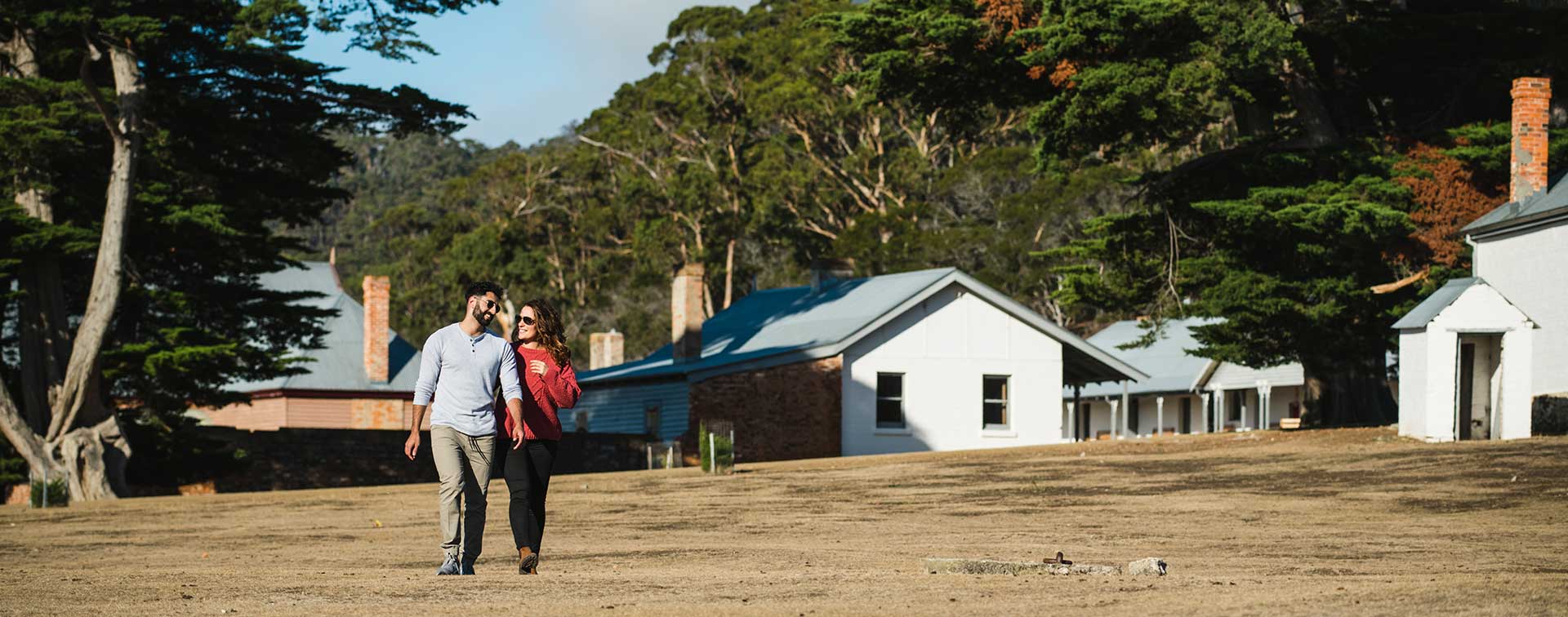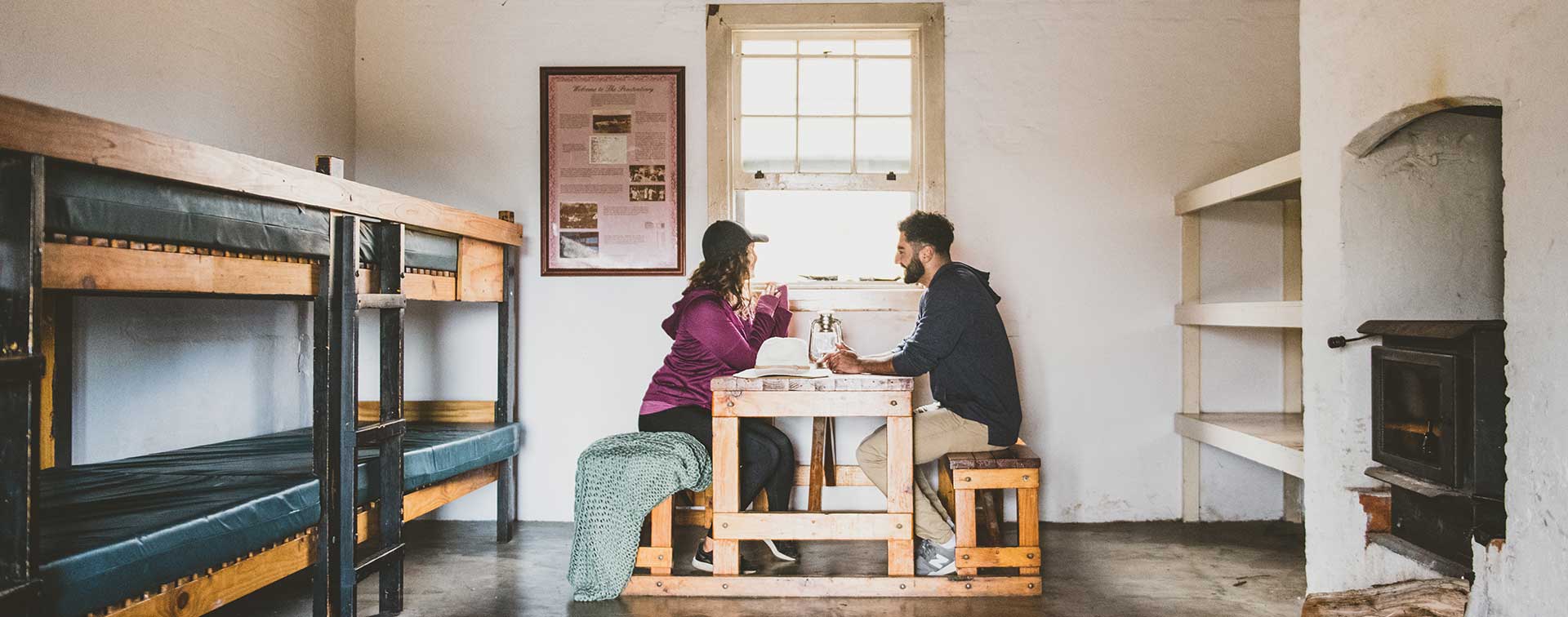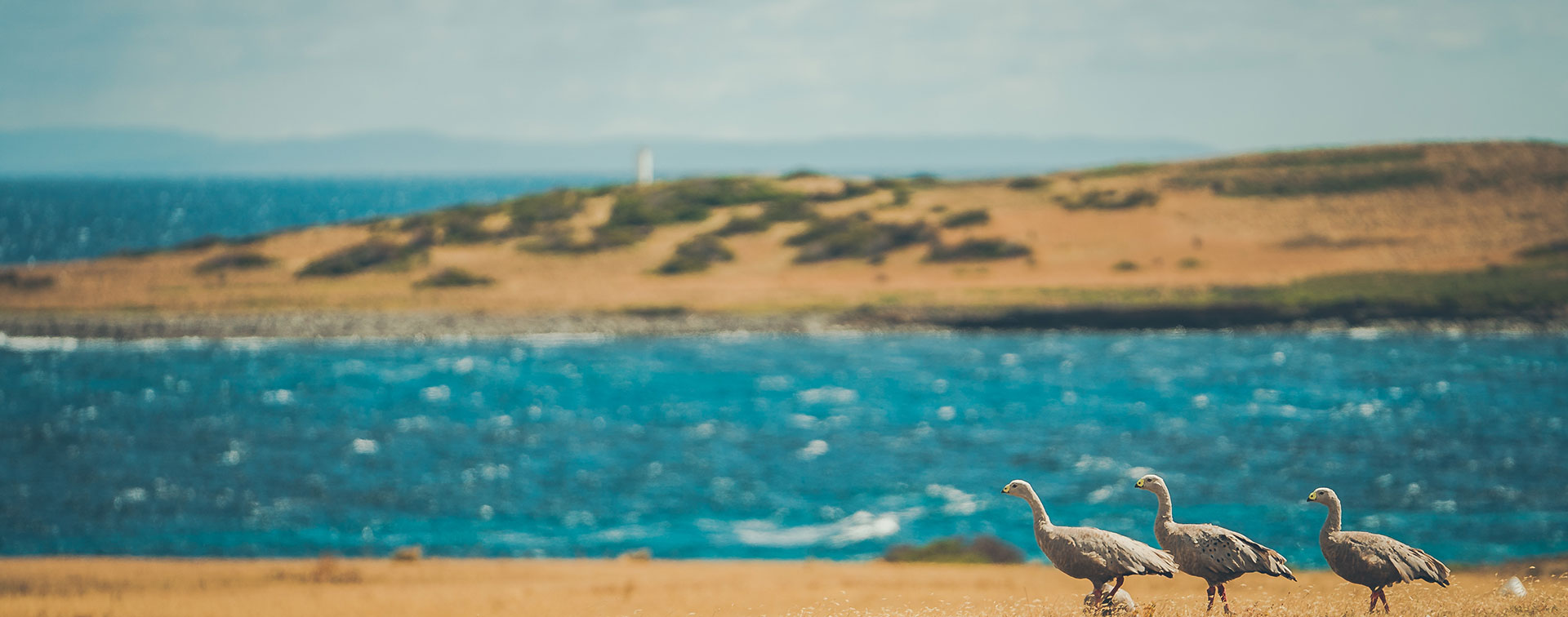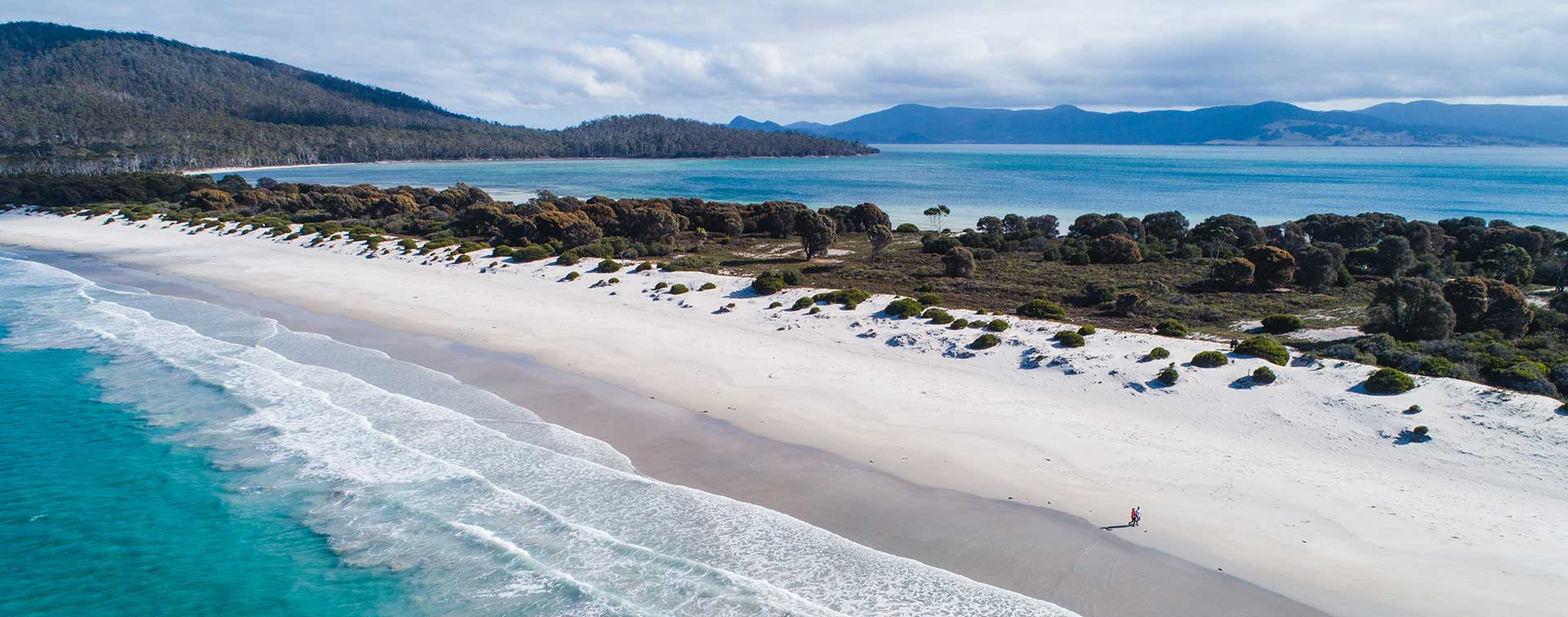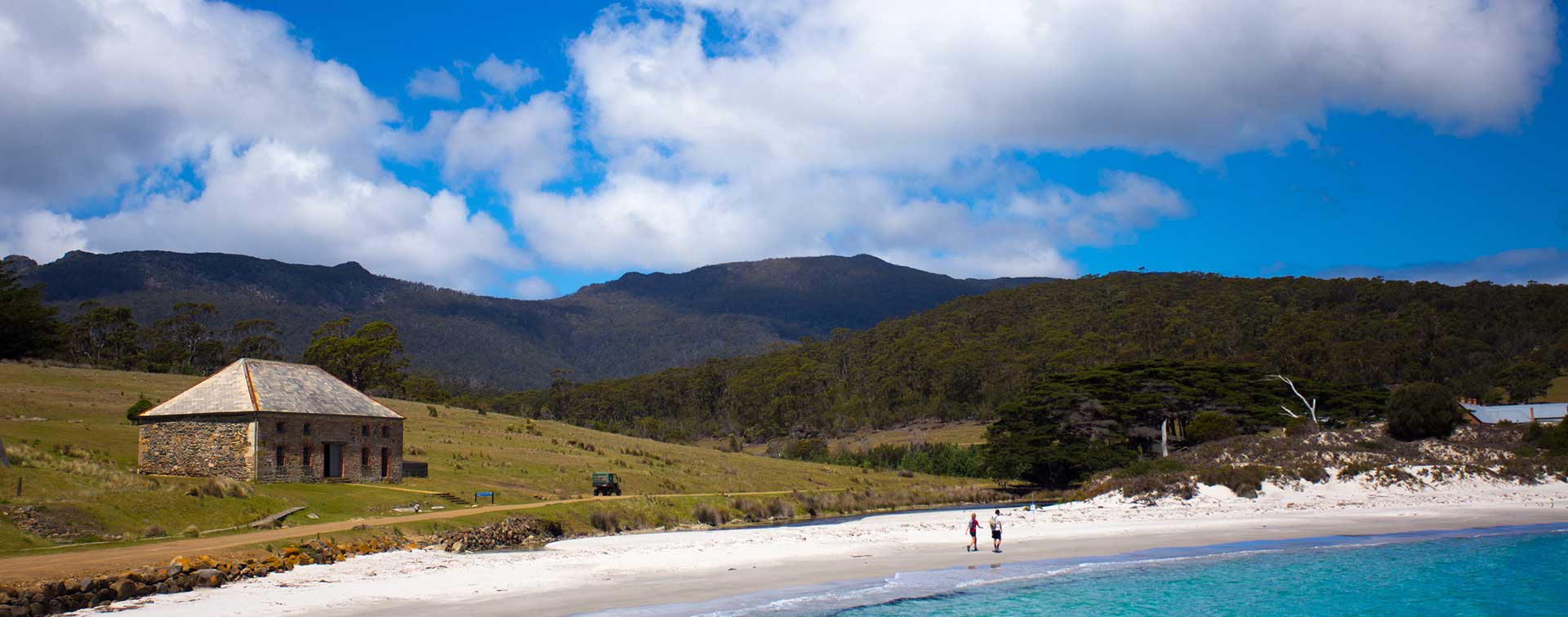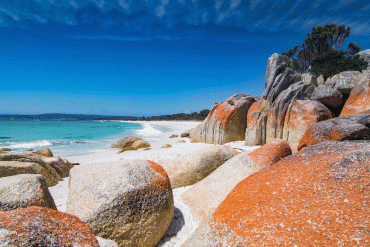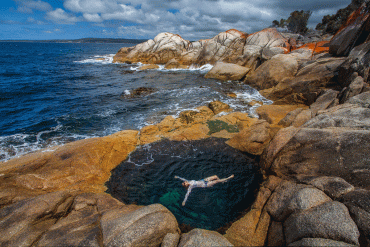1. The Bay of Fires
The Bay of Fire’s accolades are many, and all well deserved. While world renowned, mercifully, this isn’t a place where you’ll be confronted by shopping plazas and throngs of tourists. This fifty kilometre section of the East Coast extends north from Binalong Bay to Eddystone Point and is a remote and beautiful landscape of beaches, coastal vegetation and woodlands. It is inexpressibly beautiful here, not just because of the glistening sand and clear, clean ocean.
This place feels untouched—a rare quality in a destination that is so well known and loved. The Bay of Fires is best accessed from St Helens (you may have heard of their mountain bike trails?) or Binalong Bay, and you’ll find a range of accommodation in the area from which to base your explorations—from cottages, luxury beach houses, bed and breakfasts to hotel rooms, glamping and eco-lodges. There are also campsites for those natural souls who crave a more immersive experience of the Bay of Fires environment. Summer camping destinations don’t get much more idyllic than this. Walking is the preferred form of exploring here—stroll the beaches at your leisure or join a guided walk.
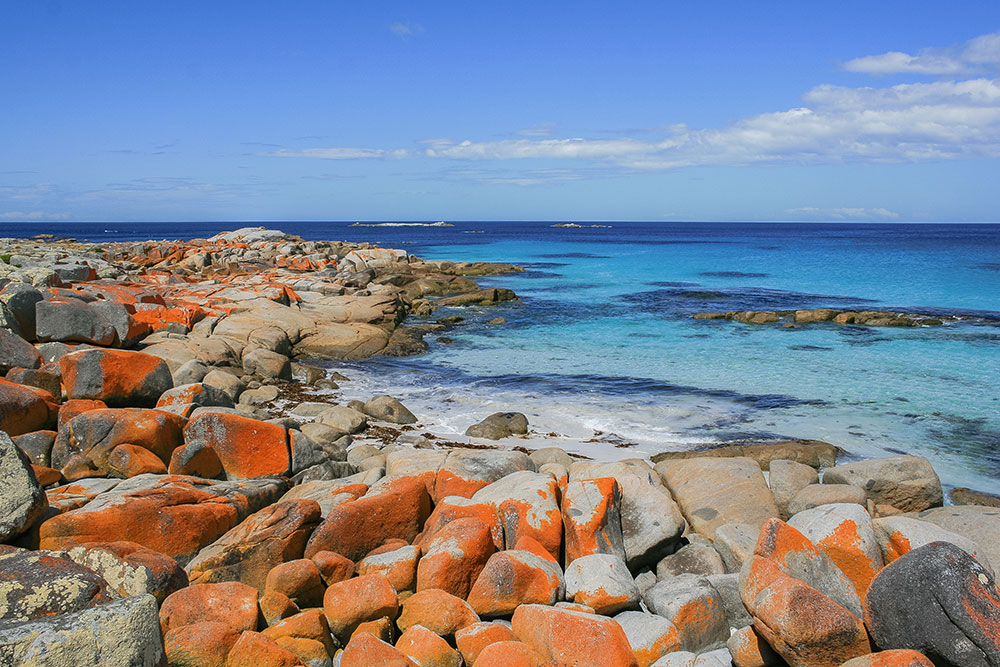
2. Freycinet
For many people, the Freycinet Peninsula is the embodiment of the East Coast experience. This rugged spur of coast has some of the region’s best known and loved beaches—including Wineglass Bay, voted one of the world’s top ten beaches.
The Freycinet Peninsula nurtures landscapes so precious that they were among the first to be protected as National Park in Tasmania. Walking in Freycinet National Park should be on everyone’s must-do list—you’ll find everything from short walks to the Wineglass Bay lookout to multi-day bushwalks among the park’s mountains, beaches and forests.
You can choose to stay within the park itself or at one of the many accommodation properties in Coles Bay. Local accommodation ranges from plush, luxury suites to beachside campsites and everything in between.
Apart from the time-honored holiday pastime of lying around with a good book while the sun warms your soul, Freycinet offers countless opportunities to join local operators on cruises, sea kayaking, guided walks, gourmet food and wine experiences, scenic flights, cycling, quad biking or four wheel driving. Yes—just about anything your heart desires.
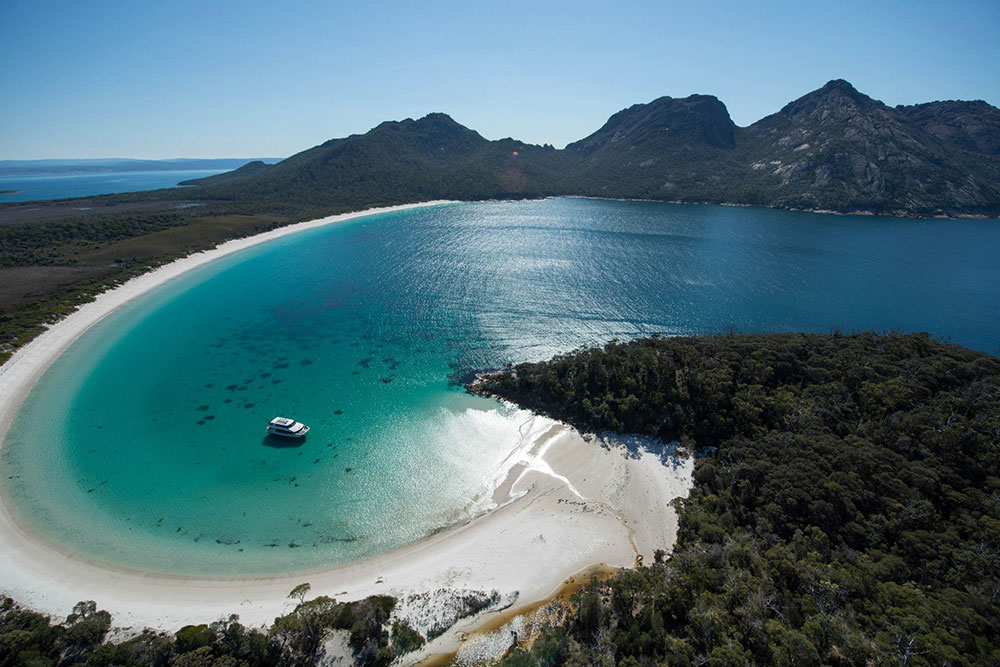
3. Maria Island National Park
There’s really nowhere else like Maria Island. As a national park, it protects an extraordinary combination of natural, geological and human landscapes and artefacts. A day trip to the island, which is accessed by ferry from Triabunna, introduces you to places like the World Heritage-listed convict site at Darlington Probation Station, colonial-era ruins, the extraordinary sandstone sculptures of Painted Cliffs and the geological storybook of Fossil Cliffs.
Maria Island is a 30 minute ferry ride from Triabunna, there are no cars here, so discovering Maria’s stunning beaches, forests, grassy plains, wildlife and historic sites happens on foot or from the seat of a bicycle. Maria’s coast can also be explored from a boat or kayak, or by snorkelling or diving within the stunning marine sanctuary.
The island’s only permanent residents are its wildlife, and close encounters with grazing wombats, wallabies and Forester kangaroos are common. Maria also hosts an insurance population of Tasmanian Devils and diverse bird life, including flocks of elegant Cape Barren Geese. Stay in the converted convict-era penitentiary rooms, camp under the stars, or join a fully-guided walk of the island and stay in private accommodation.
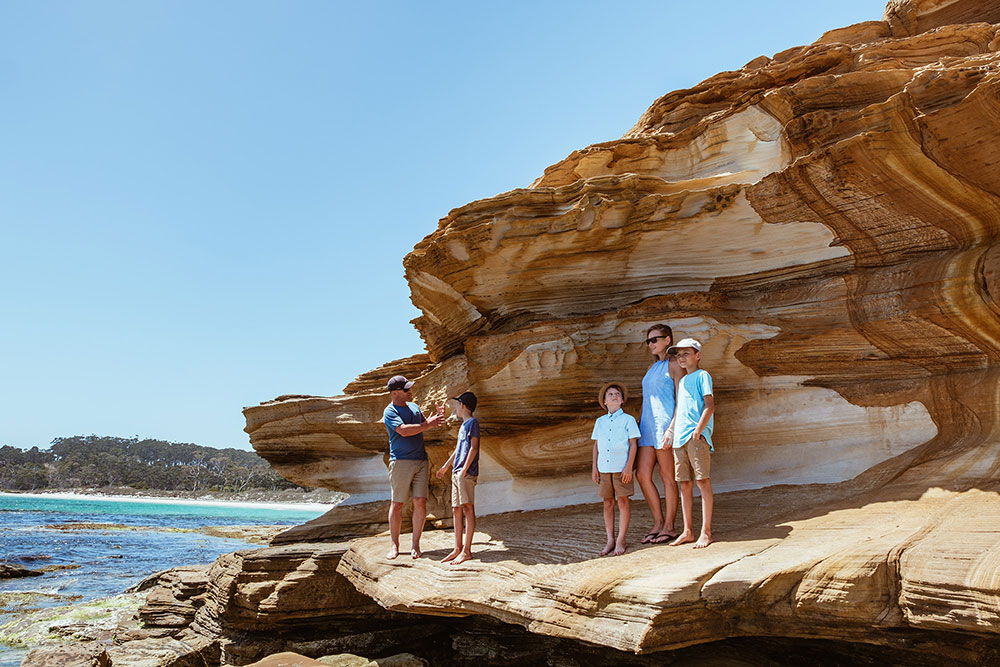
4. Bicheno
What’s that you say? I just want a classic, Australian summer holiday? Look no further than the quintessential seaside holiday town of Bicheno, it’s pretty much the center of everything. Think mild East Coast climate, perfect beaches, swimming in clear seas and relaxing on warm beaches.
Bicheno has a great range of places to stay, and a huge choice of family holiday activities. Join a nightly penguin watching tour, visit a wildlife park or enjoy a walk in nearby Douglas Apsley National Park. Take a fishing charter or cruise, go snorkeling, or explore the marine sanctuary from the sheltered deck of a glass-bottomed boat. Wine, gin and whiskey tasting is conveniently located within walking distance of most accommodation, or just spend long summer days swimming, picnicking on the beach, soaking up the mild East Coast weather.
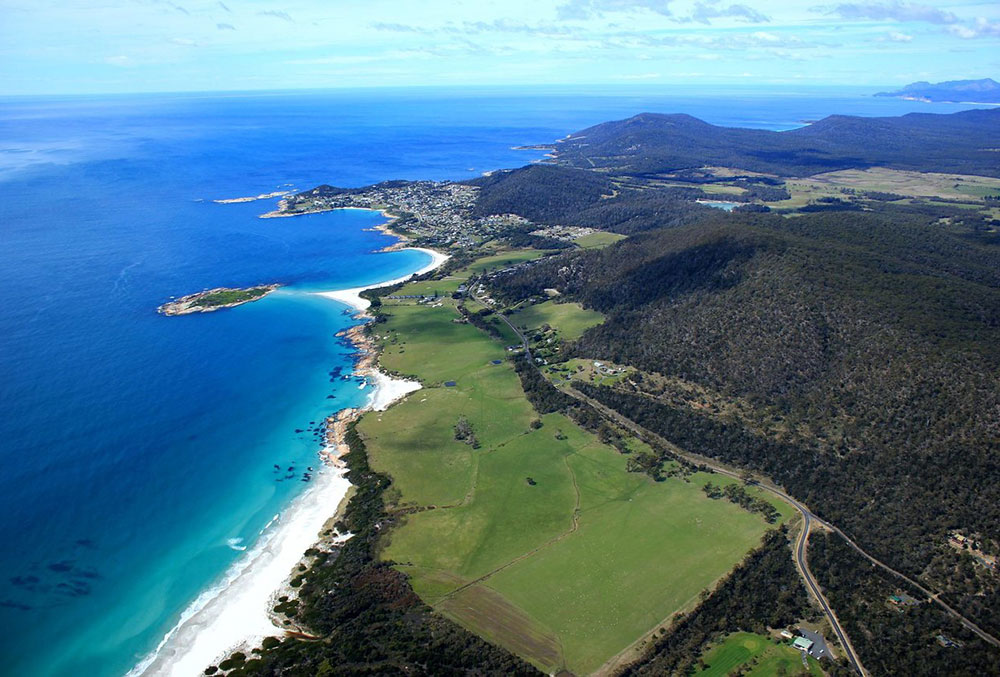
5. Escape to the forest
OK, so not technically “The Coast”, but our forests and waterfalls are a much-adored facet of the region. Head just slightly inland to St Mary’s through Elephant Pass, wind down the windows and see if you can pinpoint when the air shifts from salty goodness, to rainforest fresh. Stop for a snack and a poke around some of the quaint country boutiques in St Marys, then keep on driving through to the fertile landscape of Fingal. The Evercreech Forest Reserve is home to the world’s tallest white gum trees (The White Knights) with waterfalls just nearby.
Or if you are further north, pop in for some lunch at cheese lovers haven Pyengana, or a beer, or both! Afterwards, you can head inland just a little further to visit St Columba Falls, a short and accessible walk with water that flows all year round.
